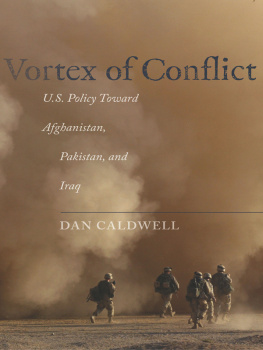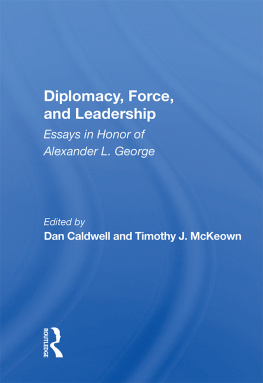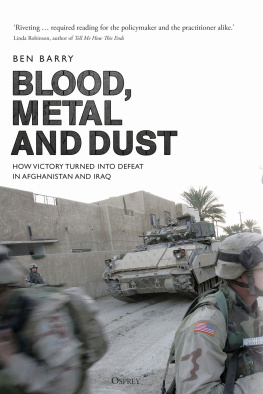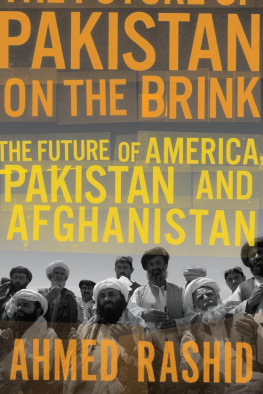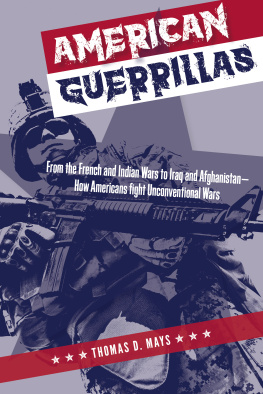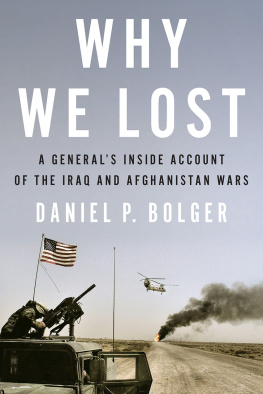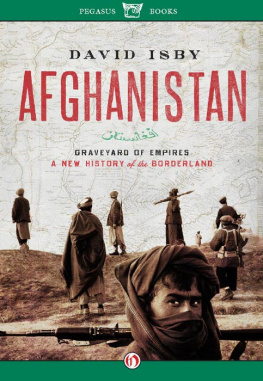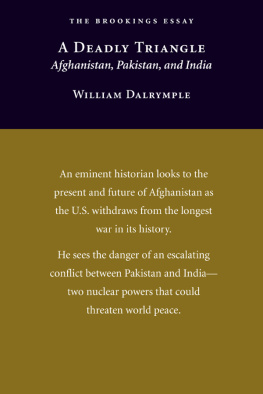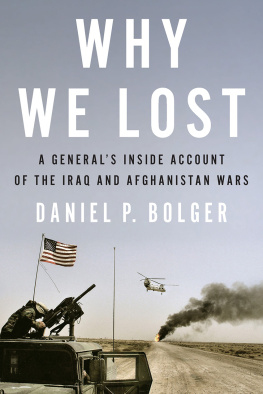VORTEX OF CONFLICT
U.S. Policy Toward Afghanistan, Pakistan, and Iraq
DAN CALDWELL
STANFORD SECURITY STUDIES
An Imprint of Stanford University Press
Stanford, California
Stanford University Press
Stanford, California
2011 by the Board of Trustees of the Stanford Leland Junior University.
All rights reserved.
No part of this book may be reproduced or transmitted in any form or by any means, electronic or mechanical, including photocopying and recording, or in any information storage or retrieval system without the prior written permission of Stanford University Press.
Library of Congress Cataloging-in-Publication Data
Caldwell, Dan (Dan Edward), author.
Vortex of conflict : U.S. policy toward Afghanistan, Pakistan, and Iraq / Dan Caldwell.
pages. cm.
Includes bibliographical references and index.
ISBN 978-0-8047-7665-3 (cloth : alk. paper)
ISBN 978-0-8047-7666-0 (pbk. : alk. paper)
1. United StatesForeign relations20012009. 2. Afghan War, 2001.
3. Iraq War, 2003. 4. War on Terrorism, 20012009. 5. United States Military policy. I. Title.
E902.C34 2011
973.93dc22
2010045290
Printed in the United States of America on acid-free, archival-quality paper. Typeset at Stanford University Press in 10/14 Minion.
Special discounts for bulk quantities of Stanford Security Studies are available to corporations, professional associations, and other organizations. For details and discount information, contact the special sales department of Stanford University Press.
Tel: (650) 736-1782, Fax: (650) 736-1784
E-book ISBN: 978-0-8047-7749-0
Contents
To those who have served in
Afghanistan and Iraq and their families,
With appreciation and gratitude
VORTEX OF CONFLICT
Tables
Preface and Acknowledgments
In 2007, at the suggestion of my friend and colleague Bruce Jentleson, the editors of Columbia International Affairs Online commissioned me to write an article on the Iraq War. They gave me significant leeway concerning the substance of my piece, and I wrote an article entitled The Wrong War at the Wrong Time with the Wrong Strategy. The title was the characterization of the Iraq War by former Central Command commander General Anthony Zinni, and the article was a long, sad work detailing the mistaken assumptions and intelligence failures that led to the U.S. invasion of Iraq in March 2003.
I wrote most of the article in San Clemente, California, at my familys beach house, which is located on the northern boundary of Camp Pendleton, a large Marine Corps base. One day after writing for five or six hours I needed a break, so I went for a walk on the beach. I saw two young men in their early twenties with very short hair (white sidewalls) who were obviously Marines, and they were building a sand castle at the edge of the shore. Immediately I thought, how nice; these two young men have probably seen and experienced a lot in their young lives, and its good that they can recapture part of their childhood. Then I looked up on the beach and saw two prostheses; I looked back at the two sand castle builders and saw that one of them was missing both legs from the knees down.
In retrospect, I am ashamed that I did not go over to the young Marine, introduce myself, and thank him for his service to and sacrifice for his country. I have been motivated to write this book by that young man. A second motivation came from a friend and Iraq veteran. Several years ago this friend, who was in the U.S. Army Reserves, was called up for active duty service in Iraq. At the time, he was in his mid-forties with three grown children and a wife to leave at home. He spent fifteen months in Iraq, and when he returned, I took him to lunch to welcome him home. After we had talked a little while, he looked at me square in the eyes and said that he had a personal question: Why was I there? A third motivation came from two friendsJuliette George and Rodney Honeycuttboth of whom after reading my article on Iraq encouraged me to expand it into a book.
The young Marine on the beach, my friend who served in Iraq, and my friends motivated me to write this book in order to describe and explain U.S. policy toward the war on terror, Afghanistan, Pakistan, and Iraq. As the bibliography at the end of this book clearly demonstrates, there are many, many articles and books about each of these subjects; these are the invaluable first cuts of history. Despite all of these, however, there is no one volume treatment that will provide the interested reader with an understanding of the reasons why and how the United States got to where it is in Afghanistan and Iraq. Pakistan is a key piece in this puzzle, and it has not yet been fully incorporated into our understanding of the U.S. involvement in both wars. I believe that, in the future, the wars in Iraq and Afghanistan, including its border with Pakistan, will be viewed as integrally related to the war on terrorism.
Several of those with whom I have spoken, including Ambassador Ryan Crocker and former Army brigade commander Colonel Peter Mansoor, have said that they would not write about Iraq because it is too soon to do so. They may be right; however, I believe that it is important to tell the story on the basis of available data. Undoubtedly, more data will become available, and history will have to be rewritten, but that is the perennial task of historians. So I offer this second cut of history with the expectation that it will have to be expanded, revised, and corrected as additional information becomes available.
Writing a book is like running a marathon; it requires many hours of training and also requires the help and forbearance of others, particularly ones family. Pepperdine University granted me a sabbatical leave during the fall semester of 2009 that enabled me to do much of my writing. Timothy Crawford and Paul Viotti read and commented in detail on the entire manuscript and offered a number of helpful suggestions. Joseph J. Collins, professor at the National Defense University, good friend, and former Army officer and member of the Rumsfeld Pentagon, also commented on the entire manuscript and shared his own writings on subjects of mutual interest. I was particularly heartened by his study of the decision to invade Iraq because, starting from opposite ends of the political spectrum, he and I reached similar conclusions.Osterholt, and Emerson Siegle, and I thank each of them. I would also like to express my appreciation to the following colleagues who read and commented on one or more chapters of the book: Khalil Jahshan, Robert Jervis, Jami Miscik, Pat Morgan, and Greg Treverton. I have tried my best to respond to the suggestions and criticisms that I have received; however, any errors that remain are my responsibility.
When I had completed the draft of the book, I asked my daughter, Ellen Caldwell, who is an art historian, to find a photograph that would be appropriate for the book, and she found the compelling photo on the cover. I thank her for her artistic insight, formatting the draft manuscript, and preparing the index.
I would also like to thank Geoffrey R. H. Burn, the director of Stanford University Press, who has provided encouragement and guidance for this project from the outset. In addition, I would also like to thank editors Jessica Walsh, John Feneron, and Martin Hanft for their insight and suggestions.
During a ceremony posthumously granting the highest U.S. military decoration to Sergeant First Class Jared C. Monti for his heroic actions to try to rescue one of his wounded comrades in a battle in Afghanistan in 2006, President Obama noted that Sergeant Monti and his fellow soldiers remind us that the price of freedom is great. And by their deeds they challenge every American to ask this question: What can we do to be better citizens? What can we do to be worthy of such service and such sacrifice? Knowing a number of those who have served in Afghanistan and Iraq, I have some idea of the sacrifices that they and their families have made for these wars, and they have paid disproportionately more than their fellow citizens. Many members of the military have served multiple tours; one Marine I met had served six consecutive tours.

